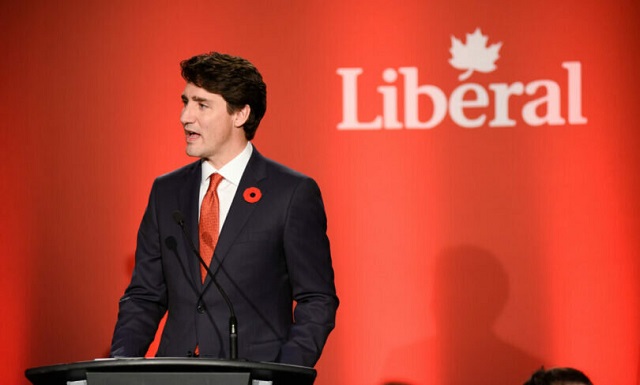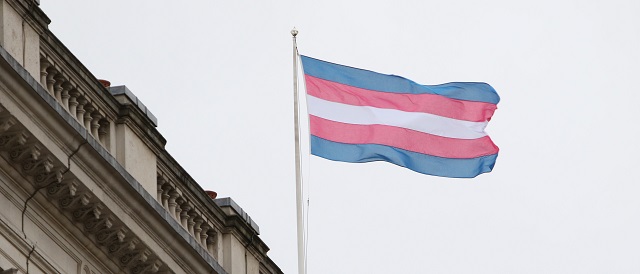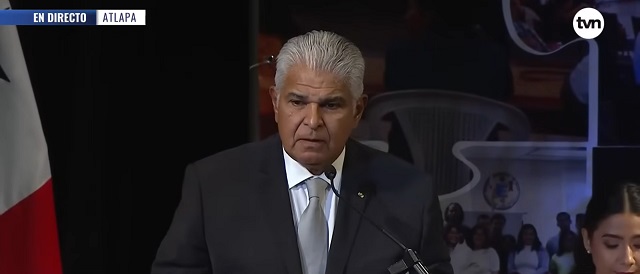Censorship Industrial Complex
Trudeau government abandoning long-threatened ‘hate speech’ bill after backlash

From LifeSiteNews
Conservative Party Leader Pierre Poilievre has warned that Trudeau’s desire to censor online ‘hate speech’ is nothing more than a ‘woke authoritarian’ tool to silence views that Trudeau dislikes.
The Liberal government is shelving its long-threatened bill to regulate truth and “disinformation” on the internet.
According to information obtained on February 21 by Blacklock’s Reporter, the Liberal government, under the leadership of Prime Minister Justin Trudeau, is abandoning legislation to regulate “hate speech” on the internet following feedback from Canadians that they consider the measure unconstitutional.
“The government heard from Canadians and stakeholders that while false and misleading information online can carry significant consequences, creating legislation and policies that restrict or otherwise limit speech based on the veracity of information would undermine freedom of expression to an unacceptable degree,” Public Safety Minister Dominic LeBlanc wrote the Commons ethics committee.
The committee had previously recommended legislation to “hold online platforms accountable for publishing false or misleading information”; however, LeBlanc replied that internet literacy programs were sufficient to regulate Canadians internet use.
“Legislation is not the only tool in the government’s toolbox to combat false or misleading information,” he said.
Additionally, most of 9,218 petitioners to the Canadian Heritage Department condemned the proposed legislation as unconstitutional.
Likewise, according to Privy Council research in 2023, most Canadians opposed the measure, saying that “it was of critical importance for Canadians to be able to leave comments and have their voices heard regarding initiatives and policies important to them.”
“While most believed harmful content online represented a growing concern few felt it to be a major issue at present,” the report said. “Several were of the view that individuals were typically able to avoid harmful content by blocking it or not utilizing platforms on which it was present.”
The legislation was first proposed in 2021, when the Trudeau government suggested that a “Digital Safety Commissioner” should police “content moderation” on the internet. Those who violated the “content moderation” would face up to $25 million in fines.
Then-Heritage Minister Steven Guilbeault argued the forbidden content should include anything that disparaged government institutions, saying, “Canada has a world-renowned public service, and it’s integral that we don’t attack them.”
“I think everybody in this country, and especially elected officials, have, I think, a responsibility, a duty to ensure that we protect our institutions and that the last thing we should try to do is to somehow diminish them just in the hope we can score points,” he added.
While Liberals support the measure, Conservative Party Leader Pierre Poilievre recently declared that Trudeau’s desire to censor online “hate speech” is nothing more than a “woke authoritarian” tool to silence views that Trudeau dislikes.
“What does Justin Trudeau mean when he says the worst hate speech?” he questioned during a press conference earlier this week. “He means speech he hates.”
Poilievre warned that Liberals would label anything they disagree with as “hate speech,” referencing former adviser Gerald Butts said that it was “hate speech” to criticize Trudeau for using the term “peoplekind,” labelling those who made fun of Trudeau as “Nazis.”
Poilievre also reminded Canadians that Trudeau branded Canadians who protested COVID regulations in the Freedom Convoy as “a small fringe minority” with “unacceptable views.”
“I point out the irony that someone who spent the first half of his adult life as a practicing racist, who dressed up in hideous racist costumes so many times he says he can’t remember them all, should then be the arbiter on what constitutes hate,” said Poilievre.
“What he should actually do is look into his own heart and ask himself why he was such a hateful racist… And maybe in that way, rather than through coercion, he could help us all in the fight against real hate,” he added.
“What does Justin Trudeau mean when he says the word hate speech? He means speech he hates.”
True North’s @AndrewLawton asks Pierre Poilievre whether the Conservatives will oppose the Trudeau government’s reintroduction of the online harms bill. pic.twitter.com/7PM9iJ5rzs
— True North (@TrueNorthCentre) February 21, 2024
While the bill regulating “hate speech” seems to have been abandoned for now, since taking office, Trudeau managed to pass bills C-11 and C-18, both of which restrict free speech over the internet.
Bill C-11, or the Online Streaming Act, became law last year and now mandates that Canada’s broadcast regulator, the Canadian Radio-television and Telecommunications Commission (CRTC), oversee regulating online content on platforms such as YouTube and Netflix to ensure that such platforms are promoting content in accordance with a variety of its guidelines.
Recently, Canadian law professor Dr. Michael Geist warned that new powers granted to Canada’s broadcast regulator via Bill C-11 will not stop at “Web Giants” but will lead to the government going after “news sites” and other “online” video sites as well.
Trudeau’s other internet censorship law, Bill C-18, the Online News Act, was passed by the Senate in June.
This law mandates that Big Tech companies pay to publish Canadians content on their platforms.
As a result, Meta, the parent company of Facebook and Instagram, blocked all access to news content in Canada.
Critics of Trudeau’s recent laws, such as tech mogul Elon Musk, have said it shows that “Trudeau is trying to crush free speech in Canada.”
Censorship Industrial Complex
Quebec court greenlights class action suit against YouTube’s COVID-related content censorship
From LifeSiteNews
The lawsuit, led by video blogger Éloïse Boies, argues YouTube violated freedom of expression under the Charter of Human Rights and Freedoms by censoring COVID-related content.
A class action lawsuit against YouTube’s censorship of COVID-era speech on the platform has been allowed to proceed in Canada.
The primary plaintiff in the case which has now been greenlit by the Quebec Superior Court is YouTuber Éloïse Boies, while the filing accuses the Google video platform of censoring information about vaccines, the pandemic, and the virus itself.
A copy of the order can be found HERE.
READ: Elon Musk skewers Trudeau gov’t Online Harms bill as ‘insane’ for targeting speech retroactively
Boies, who runs the “Élo Wants to Know” channel, states in the lawsuit that three of her videos got removed by YouTube (one of the censored videos was about… censorship) for allegedly violating the website’s policies around medical disinformation and contradicting World Health Organization and local health authorities’ COVID narratives of the time.
However, the content creator claims that the decisions represented unlawful and intentional suppression of free expression. In February, Boies revealed that in addition to having videos deleted, the censorship also branded her an “antivaxxer” and a “conspiracy theorist,” causing her to lose contracts.
The filing cites the Charter of Human Rights and Freedoms as the document YouTube violated, while the class-action status of the lawsuit stems from it including any individual or legal entity in Quebec whose videos dealing with COVID got censored, or who were prevented from watching such videos, starting in mid-March 2020 and onward.
Google, on the other hand, argues that it is under no obligation to respect the Charter of Human Rights and Freedoms, and can therefore not be held accountable for decisions to censor content it doesn’t approve of – or as the giant phrased it, provide space for videos “regardless of their content.”
But when Superior Court Judge Lukasz Granosik announced his decision, he noted that freedom of expression “does not only mean freedom of speech, but also freedom of publication and freedom of creation.”
Stressing the importance that Canada’s Supreme Court assigns to guaranteed freedom of expression as a key building block in a democratic society, the judge concluded that “If (Google) carries out censorship by preventing certain people from posting videos and prevents other people from viewing these same videos, it thus hinders the free circulation of ideas and exposes itself to having to defend its ways of doing things.”
Google was ordered to stop censoring content because it contradicts health authorities, WHO, or governments, pay $1,000 in compensation, and $1,000 in punitive damages to each of the lawsuit’s plaintiffs, as well as “additional compensation provided for by law since the filing of the request for authorization to take collective action, as per the court’s decision.”
As for those who were prevented from accessing content, the decision on damages will be the subject of a future hearing.
Reprinted with permission from Reclaim The Net.
Censorship Industrial Complex
Elon Musk skewers Trudeau gov’t Online Harms bill as ‘insane’ for targeting speech retroactively

From LifeSiteNews
It literally spits in the face of all Western legal traditions, especially the one about only being punished if you infringed on a law that was valid at the time of committing a crime
Billionaire tech mogul Elon Musk remarked that it is “insane” that the Trudeau government’s proposed “Online Harms” bill would target internet speech retroactively if it becomes law.
“This sounds insane if accurate!” wrote Musk on Tuesday, in reply to an X (formerly Twitter) user named Camus who detailed that Prime Minister Justin Trudeau’s government’s Bill C-63, the Online Harms Act, could see Canadians fined or even jailed for things posted on the internet prior to the bill becoming law.
Camus noted how Bill C-63 could give police “the power to retroactively search the Internet for ‘hate speech’ violations and arrest offenders, even if the offence occurred before the law existed.”
A brief time later, X’s “CommunityNotes” program – a system in which users collectively “fact-check” information shared on the site –confirmed what Camus had written was accurate, quoting a section of the bill’s text.
“Part 3 of Bill C-63, which is still at first reading stage and is not yet law, adds to the Canadian Human Rights Act: ‘a person communicates or causes to be communicated hate speech so long as the hate speech remains public and the person can remove or block access to it,’” CommunityNotes wrote.
Camus observed about Bill C-63 that the “Trudeau regime has introduced an Orwellian new law.”
“This new bill is aimed at safeguarding the masses from so-called ‘hate speech,’” he wrote. “The real shocker in this bill is the alarming retroactive aspect. Essentially, whatever you’ve said in the past can now be weaponized against you by today’s draconian standards.”
Camus observed how historian Dr. Muriel Blaive has weighed in on “this draconian law,” labeling it outright “mad.”
“She points out how it literally spits in the face of all Western legal traditions, especially the one about only being punished if you infringed on a law that was valid at the time of committing a crime,” wrote Camus.
Bill C-63 was introduced by Liberal Minster Attorney General Arif Virani on February 26 and was immediately blasted by constitutional experts as troublesome.
The bill, if passed, will modify existing laws, amend the Criminal Code as well as the Canadian Human Rights Act, in what the Liberals claim will target certain cases of internet content removal, notably those involving child sexual abuse and pornography.
However, the bill also seeks to police “hate” speech online with broad definitions, severe penalties, and dubious tactics.
Trudeau’s new bill a ‘terrible attack’ on speech, Musk warns
On Tuesday, well-known Canadian psychologist Jordan Peterson replied to Musk by saying about Bill C-63, “It’s much much worse than you have been informed: plans to shackle Canadians electronically if accusers fear a ‘hate crime’ might (might) be committed.”
“It’s the most Orwellian piece of legislation ever promoted in the West.”
Musk replied to Peterson by saying Bill C-63 is “[a] terrible attack on the rights of Canadians to speak freely!”
Other notable X users, such as Canadian lawyer David Freiheit, who is known online as Viva Frei, confirmed Musk’s concern that Bill C-63 could go after X users from posts/tweets made long ago.
“It’s pretty close to accurate, Elon. If someone has the ability to delete a ‘hate speech’ tweet / post and does not, and someone else retweets that tweet, it would qualify as ‘publication’ under the law and be sanctionable,” he wrote.
Details of the new legislation to regulate the internet show the bill could lead to more people jailed for life for “hate crimes” or fined $50,000 and jailed for posts that the government defines as “hate speech” based on gender, race, or other categories.
The bill also calls for the creation of a digital safety commission, a digital safety ombudsperson, and a digital safety office.
The Justice Centre for Constitutional Freedoms (JCCF) has said Bill C-63 is “the most serious threat to free expression in Canada in generations. This terrible federal legislation, Bill C -63, would empower the Canadian Human Rights Commission to prosecute Canadians over non-criminal hate speech.”
In a recent podcast, Peterson and Queen’s University law professor Bruce Pardy warned of the “totalitarian” impact Trudeau’s new Online Harms bill will have on Canada.
Peterson observed that the Trudeau government is effectively “establishing an entirely new bureaucracy” with an “unspecified range of power with non-specific purview that purports to protect children from online exploitation” but has the possibility of turning itself into an internet “policing state.”
-

 City of Red Deer2 days ago
City of Red Deer2 days agoCity Council paving the way for more house suites, backyard suites, tiny homes, and duplexes
-

 Uncategorized1 day ago
Uncategorized1 day agoRCMP recruitment failure has Alberta advocacy group calling for Provincial Police Service
-

 Automotive9 hours ago
Automotive9 hours agoGovernments in Canada accelerate EV ‘investments’ as automakers reverse course
-

 Health1 day ago
Health1 day agoPrivate Footage Reveals Leading Medical Org’s Efforts To ‘Normalize’ Gender Ideology
-

 COVID-1920 hours ago
COVID-1920 hours agoJapan’s most senior cancer doctor: COVID shots are ‘essentially murder’
-

 Health1 day ago
Health1 day agoTHE WPATH TAPES: Behind-The-Scenes Recordings Reveal What Top Gender Doctors Really Think About Sex Change Procedures
-

 Economy12 hours ago
Economy12 hours agoBiden signs suicidal ‘No Coal’ pact, while rest of world builds 1,000 new plants
-

 illegal immigration2 days ago
illegal immigration2 days agoPanama’s Incoming President Wants To Shut Down His Country’s Most Treacherous Route For Migrants — But Will It Work?







